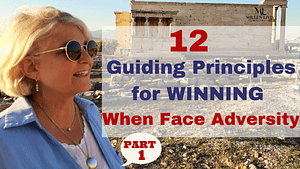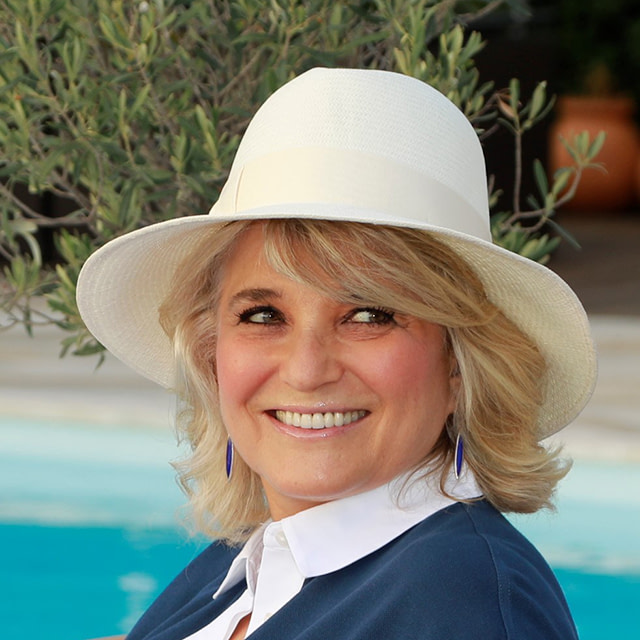
Ancient Stoic Philosophy has a fantastic framework to help us navigate through life when we face adversities… and you know we have plenty of those right now – from Nature’s hurricanes to economic and financial hurricanes…
Here’s the thing… Our brain has this amazing quality called neuroplasticity.
It’s not rigid, it’s malleable! Which means – you can “train your brain”!
And since mind is the brain in action, you have the ability to cultivate certain attitude, perceptions and thought patterns that are life-supportive, instead of life-sabotaging.
In other words, you can always weed out destructive beliefs and habits, and replace them with those that can help you reduce stress, achieve more success in business and in life, and overall improve your wellbeing.
The challenging part, as always, is EXECUTION.
You know that in your everyday life, but especially when you face hardship, crisis, or chaos, being able to stay calm, have clarity, act with objectivity, and think rationally can help you be less reactive, more intentional, and more resilient.
When you don’t manage your emotions, or unable to think clearly and rationally, it’s easy to be controlled by external environment, feel overwhelmed and act reactively rather than intentionally.
Look… Life is a challenging journey. Adversities, obstacles, challenges, failures are part of human experiences.
Many people, when they experience failure, get into a negative self-talk like “I’m not good enough, not smart enough, etc.”, “I’m not capable, ”I’m not lucky”, or “I’ll never be able to be… (fill the blank) wealthy, successful, loveable, in-shape, etc.”
However, the Stoics gave us a philosophical framework that not only allows us to survive adversity but to WIN in spite of it.
This framework, among other tools I use (like NLP, Timeline therapy, energy healing, etc.) helped me cultivate attitude of radical gratitude; release harmful self-talk and unsupportive patterns of thinking; and to “keep it together” in times of adversities, so that I could stay focused on solutions.
It is my intention that these
12 PRACTICAL Guiding Principles will help You WIN when you face adversity, like they’ve helped me.
1. Self-awareness is Gold.
Self-awareness is one of the most important qualities to have.
You’ve got to know yourself:
– Your Emotions – their effects on you and their causes;
– Your Values – what decisions you take that are not in alignment with your values;
– Your Habits – which ones are not supportive of your values and goals.
This principle can be challenging to act on… Because it requires a willingness to face hard truths about yourself – your beliefs, choices, and actions.
However, this awareness is key to understanding the underlying causes of your decisions and is very helpful for dealing with your challenges in a healthy way.
Making time for introspection, journaling, and meditating are powerful tools for practicing self-awareness as they allow you to learn from past experiences.
You can also act as a mentor to yourself and give yourself a wise advice you’d give to a friend or a client.
2. Be Clear about What Is and Is NOT within Your Control.
Epictetus, one of Stoic philosophers, explained that in any given situation there are things that are within your control, and there are things that you have no control over.
When you start making this distinction for yourself, three things will become clear:
1. Your efforts to change things that are not in your control are useless. They are not up to you.
2. When you try to control the things in life you have NO control over, you become frustrated, demotivated, and deflated.
3. When you focus your energy on the things within your control, you’ll avoid feeling helpless, incapable, and bitter, and will be more effective.
This is a very important distinction to make in any given set of circumstances, because much of our suffering comes from
– Lack of awareness of what’s not within our control or
– Inability to accept the things we have not control over.
So, the rational response to different challenges in your life would be to Accept the situation as it is, and to Act on what is within your control, so that you can move forward.
The refusal to accept life circumstances that are not in your control leads to more suffering and feeling stuck, because you focus on things you can do nothing about, instead of focusing on things that are within your power.
And where you place your focus you place your energy.
Epictetus, one of the leading Stoic philosophers, asserted that “There is only one way to happiness and that is to cease worrying about things which are beyond your power or your will.”
I love the Serenity Prayer by Reinhold Niebuhr:
“God, grant me the serenity to accept the things I cannot change,
courage to change the things I can,
and wisdom to know the difference.”
This prayer reflects a healthy attitude and empowering mindset.
It also a reminder that you’ve got to act on things that are in your control.
For example, you may not have control over inflation or a stock market performance, but you do have control over your attitude toward money and wealth, your spending decisions, and your knowledge about finances.
Some people act without having adequate knowledge of the subject matter, others don’t act on the knowledge the do have.
So, it’s not enough to know, you’ve got to act on your knowing, in spite of your doubts and fears.
That’s all for PART 1 of this series.
Today we covered top two guiding principles:
1. Self-awareness is gold.
2. Be clear about what is and is not within your control.
In the next week’s newsletter I’ll share with you the next 5 guiding principles to help you feel more empowered and act with more clarity.
To your Health, Wealth, and Freedom!

